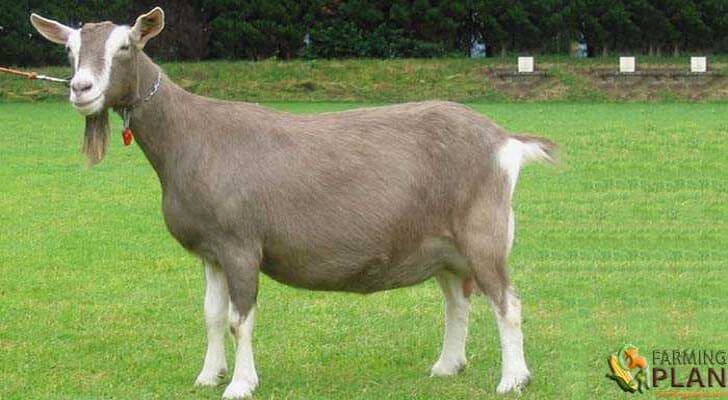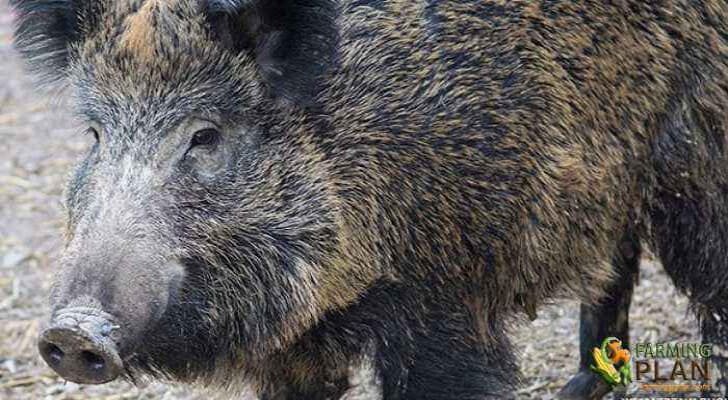Whether you’re new to pig farming or have been raising pigs for a while, learning the basics of Cantonese Pig (or WCP) farming can make all the difference. The White Chinese Pig is an incredibly unique animal with a long and complex history that stretches back centuries. Also known as the “Cantonese porker”, it has become increasingly popular today due to its lean body and unique flavor profile. From housing considerations to specialized diets, there are many important aspects of balance when managing this breed in your backyard farm setting. So join us now as we explore the fundamental elements of proper Cantonese pig husbandry – from selection tips to common nutrition and disease prevention practices!

History & Origin
The Cantonese pig, known for its distinctive taste and texture, has a rich history that dates back to ancient China. Originally bred in the Guangdong province, these pigs were prized for their high-quality meat and were often given as tribute to emperors. Over time, the breed became popular throughout China and eventually spread to other parts of the world. Today, Cantonese pigs are used in many traditional Chinese dishes, from crispy pork belly to steamed buns, and are a beloved part of Chinese culinary culture. Their unique flavor profile and cultural significance make them a favorite among food enthusiasts and historians alike.
Characteristics
The Cantonese Pig, also known as the Guangdong Xiang Pig, is a pig breed with unique characteristics that set it apart from other pig breeds. The Cantonese Pig is widely distributed throughout China and is known for its excellent meat quality, making it a favorite for pork dishes in Cantonese cuisine. What makes this breed stand out is its short legs, large head, and bent snout. Additionally, they have plump and tender meat with a distinctive flavor. Despite its small size, the Cantonese Pig is easy to recognize and is considered a cultural symbol in the region. This pig breed is not just known for its meat quality but also for its adaptability to different environments, hardiness, and resistance to diseases. Truly, the Cantonese Pig is a breed worth knowing and experiencing.
Feed
For those interested in raising livestock, the Cantonese Pig is a unique breed to consider. Originating from southern China, these pigs are known for their high-quality meat and distinctive black coloration. Feeding a Cantonese Pig requires attention to their dietary needs, which consist of a mixture of corn, barley, and soybean meal, as well as vitamins and minerals to ensure their health and wellbeing. While they may require a bit more maintenance than other breeds, the end result of their meat is well worth the effort. Plus, being able to raise and care for a unique breed is a fulfilling endeavor for any aspiring livestock farmer.
Usage
Cantonese pig may not be the most mainstream dish, but it is definitely worth trying if you ever have the chance. This traditional Chinese delicacy involves roasting a whole pig and serving it with a thick, amber-colored sauce made from soy sauce, sugar, and other secret ingredients. The pig is cooked to perfection, with a crispy skin and tender meat that practically melts in your mouth. While it may not be for the faint of heart, the unique flavors and textures of Cantonese pig are sure to delight adventurous foodies. Whether you are a die-hard meat lover or simply looking to expand your culinary horizons, Cantonese pig is a dish that is definitely worth experiencing.
Special Feature
Cantonese pig, also known as “siu yok,” is a beloved dish in Chinese cuisine. It’s one of those dishes that brings families and friends together around the dining table. The reason for its popularity is the perfect combination of crispy skin and juicy meat. The Cantonese have perfected the art of roasting a pig, and their secret lies in their time-honored cooking techniques. The pigs are marinated in a special blend of spices and honey before being roasted over high heat until the skin becomes golden-brown and crispy. To taste this succulent dish is to experience a culinary masterpiece that has been passed down through the generations.
Essential Preparations for Successful Cantonese Pig
Cantonese pig farming can be a lucrative business venture, but it requires careful preparations to ensure success. One of the key factors in successful pig farming is selecting the right breed. When choosing a breed for your farm, consider factors such as temperament, growth rate, and disease resistance. Once you have selected your pig breed, the next step is to find appropriate housing and fencing. Pigs need plenty of space to move around, and their living quarters should be kept clean and well-ventilated. Additionally, providing proper nutrition for your pigs is crucial. A well-balanced diet that includes protein, carbohydrates, and vitamins will ensure that your pigs grow healthy and strong. With these essential preparations in place, you can confidently embark on a rewarding career in Cantonese pig farming.
Breeding & Breeding Stock
Breeding is an essential aspect of livestock production. If you want to improve your herd’s quality, you need to pay close attention to breeding and breeding stock selection. The process of selecting breeding stock is critical, and it is vital to choose the right animals to maximize genetic potential. When selecting suitable breeding stock, you need to look for specific traits that match your goals. These traits include good health, disease resistance, productivity, and adaptability to environmental changes. In addition, careful selection should be based on the animal’s conformation, temperament, and lineage. By selecting the right breeding pairs, you increase the likelihood of producing healthy offspring with excellent performance and productivity. Therefore, it’s essential to be informed about the breeding process to choose the best breeding stock and enhance your herd’s genetic potential.
Proper Care & amp; Management
When it comes to owning a pig, ensuring they are both healthy and happy is essential. Proper care and management techniques should be put in place to achieve this. This includes regularly vaccinating them against common diseases, encouraging exercise to maintain their physical fitness and overall wellbeing, and scheduling health examinations to check for any potential health issues. Carrying out these strategies will not only contribute to your pig’s overall health and happiness, but it will also give you peace of mind knowing that your furry friend is in good hands.
Processing Pigs for Meat
As a consumer, it’s important to know that the meat we’re eating has been harvested humanely and safely. When it comes to processing pigs for meat, there are various methods used in the industry, ranging from traditional hand-slaughter to mechanical stunning. No matter the method used, it’s crucial that the animals are treated with respect and care. Additionally, after the slaughter is complete, there are strict safety protocols in place to ensure that the meat is properly handled and processed to prevent contamination. It is in everyone’s best interest to prioritize the wellbeing of both the animals and the consumers.
Tips & amp
Pig farming can be a fantastic way to start a farming venture, but it comes with its own set of unique challenges. As a beginner farmer, it’s crucial to understand common mistakes and have helpful tips under your belt to avoid unnecessary stress and failure. When it comes to raising pigs, avoiding overfeeding, overlooking the importance of proper sanitation, and not considering the pigs’ temperament are significant errors. Additionally, ensuring your pigs have enough space and are protected from weather conditions are essential components of healthy pig farming. To get started, research breeds, expenses, and licensing requirements in your area. With careful planning and attention to detail, raising pigs can be a thriving and rewarding experience for any beginner farmer.
FAQ
How do you say pig in Cantonese?
In Cantonese, the word for pig is “juir”. It comes from the Middle Chinese term for pork or pig meat, which is “jiuw”. In ancient China, people used to use “jiuw” to refer to pigs and boars in general.
What is the characteristic of Cantonese pig?
Cantonese pigs are a traditional breed of swine originating from Guangdong province in southern China. They have a variety of unique characteristics that differentiate them from other pig breeds.
What is the Chinese breed of pig?
The Chinese breed of pig is the Meishan, known as a hardy and popular pig that has been used in China for thousands of years. The Meishan is one of the five major meat-type breeds in China and is native to the area around Poyang Lake near Nanjing City.
Conclusion
In conclusion, the Cantonese pig is an animal with a fascinating origin and rich history. When raised properly, these pigs have special characteristics such as their slight size and their unique temperament. Having the right breed, appropriate housing/fencing, and clear nutrition are essential preparations for successful Cantonese Pig farming. It is also important to be mindful of carefully selecting breeding pairs that feature desirable traits that one would want to pass on to succeeding generations. Additionally, proper care and management should be regularly considered so that your pig remains healthy and happy throughout its lifespan. Knowing how to humanely harvest pork as well as applying proper safety protocols after slaughter is part of proper processing of the animals when it comes time to enjoying delicious pork meals. Last but not least, tips and tricks for beginner farmers provide informed advice regarding common mistakes to avoid when raising pigs as well as helpful tips for getting started in this adventure-filled business venture. Altogether, raising Cantonese pigs can be both rewarding and life-changing when done correctly!


